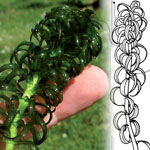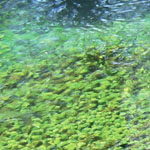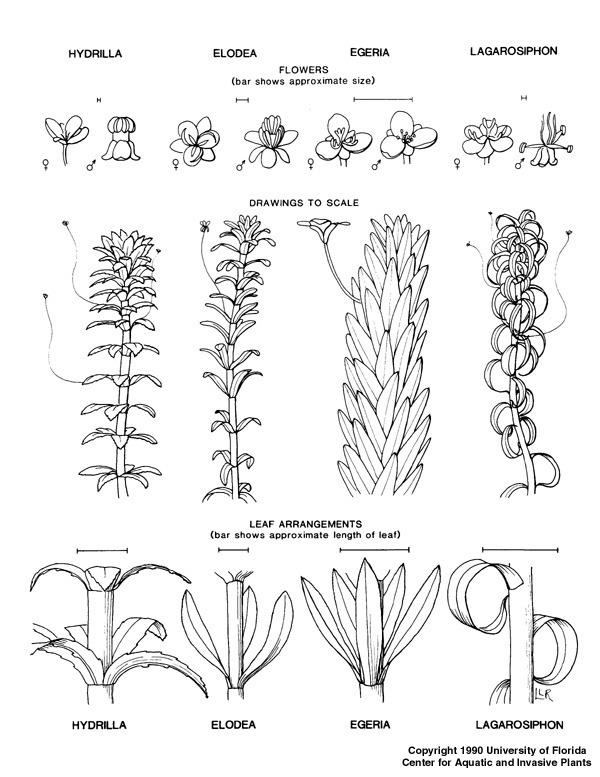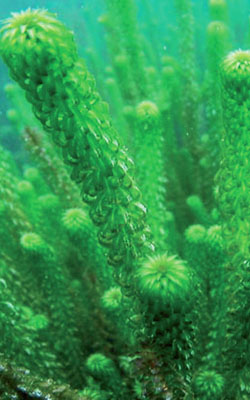Lagarosiphon
If you think you have seen lagarosiphon, please contact us by:
- completing this form
- calling our Customer Service Centre on 136 186, or
- emailing weed.spotters@agriculture.vic.gov.au
Please do not attempt to treat or dispose of this weed yourself. We will treat, remove and dispose of lagarosiphon safely, at no cost to the land owner.
Why you must report lagarosiphon
Lagarosiphon is an aggressive freshwater aquatic plant that:
- chokes still and slow-moving water like lakes and dams
- depletes oxygen levels in water, resulting in fish kills
- prevents recreational activities like swimming, boating and fishing
It is easily spread between water bodies by stem and root fragments on boats and trailers.
Once established it is difficult and costly to eradicate.
Lagarosiphon in Victoria
Lagarosiphon originates from southern Africa and has become a major weed in New Zealand and parts of Europe. It prefers the cooler waters of the temperate zone, such as Victoria.

Plants have been found in New South Wales and Victoria, mainly as an ornamental in aquaria and ponds.
All known infestations in Australia have been eradicated.
Identifying lagarosiphon
Lagarosiphon is an aquatic plant that grows submerged, either rooted to the floor of the water body or free floating.

Stems can grow up to 5m long. It tolerates a range of water conditions but grows best in sheltered, still or slow-moving water bodies.
Lagarosiphon has stiff, bright green to dark green leaves 5mm to 20mm in length, arranged in alternate spirals along the length of the stem (not in grouped whorls around the stem like its look-alikes).
Only female plants are present outside the native range, which have flowers that:
- are very small (less than 3mm across)
- are white to pink or purplish in colour
- are visible on the water surface from December to April
Lookalike species
Lagarosiphon can be confused with other common aquatic plants such as:
- Elodea
- Egeria
- Hydrilla

Image credits
Illustrated image by Laura Line, University of Florida/IFAS Centre for Aquatic and Invasive PlantsUF/IFAS Center for Aquatic and Invasive Plants.
Lagarosiphon 3D model
The New South Wales Department of Primary Industries have developed 3D (three-dimensional) models to help people become more familiar with prohibited invasive plants, including lagarosiphon, by providing a life like representation.
The model can be manipulated and inspected at every angle and magnification and is a great way to become more familiar with lagarosiphon.
© Regional NSW through NSW DPI Invasive Species Biosecurity. Model created by Rachel Klyve.
